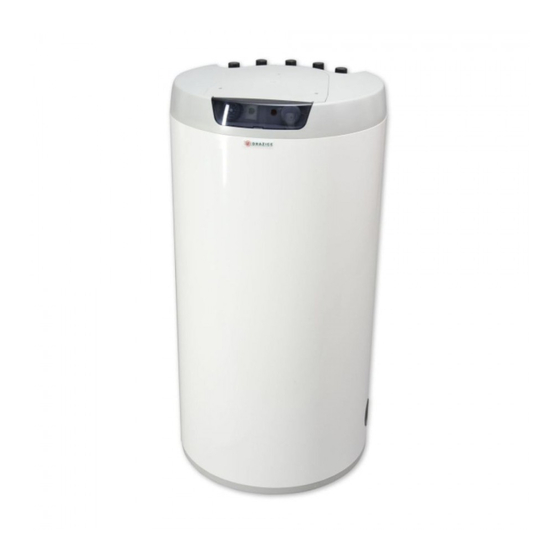Drazice OKCV 200 NTR Panduan Pengoperasian dan Pemasangan - Halaman 2
Jelajahi secara online atau unduh pdf Panduan Pengoperasian dan Pemasangan untuk Ketel uap Drazice OKCV 200 NTR. Drazice OKCV 200 NTR 17 halaman. Tank type indirect water heaters

Read carefully the below instructions prior to the installation of the heater!
Dear Customer,
The Works Cooperative of Dražice - Machine Plant, Ltd., would like to thank you for your decision to use a product of
our brand.
With this guide, we will introduce you to the use, location, construction, maintenance and other information on the tank
type pressure water heater. Product's reliability and safety is proven by tests implemented by the Engineering Test
Institute in Brno.
We believe you will be fully satisfied with our product.
The manufacturer reserves the right for engineering modification of the product.
The product is designed for permanent contact with drinkable water.
Guide Contents
1.
2.
3.
4.
.................................................................................................................................................. 5
5.
6.
7.
8.
9.
10.
11.
12.
13.
14.
15.
16.
Environment Type:
It is recommended to use the product in indoor environment with air temperatures from +2°C to 45°C and a max.
relative humidity of 80%.
1.
FUNCTION DESCRIPTION
Indirect stationary heaters of NTR and NTRR series are used for HSW water heating in conjunction with another source
of heating water, most often a gas boiler, for NTRR types combination of two heating water sources (gas boiler + solar
system, heat pump). Their nominal performance provides sufficient amount of hot service water (HSW) even for large flat
units - premises, restaurants and similar establishments. In case of increased hot water consumption, these tanks heat
water continuously, operating similarly to flow heaters.
2.
MESSAGE FOR CUSTOMERS
Hot water consumption
Consumption of hot water in households depends on the number of people, amount of sanitary equipment, length,
diameter and insulation of piping in the flat, or on individual habits of users.
................................................................................................................................ 2
............................................................................................................................ 2
.............................................................................................................................. 3
................................................................................................................................... 5
...................................................................................................................................... 6
............................................................................................................................ 10
........................................................................................................ 11
.................................................................................................................................. 11
...................................................................................................................... 12
.............................................................................................................................. 12
................................................................ 7
........................................................................................ 10
............................................................................................ 11
............................................................ 12
.............................................................................. 12
2
